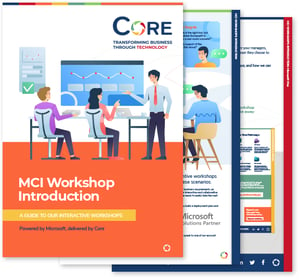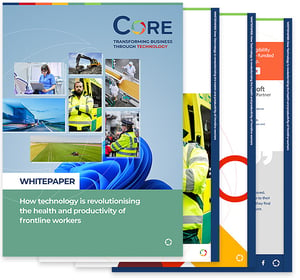In our previous blog we explained Microsoft’s industry cloud services, specifically Cloud for Non-Profit.
In this part two of the series, we’ll go into further detail around the key processes Cloud for Non-Profit addresses, and how non-profit organisations can benefit extensively from the Fundraising and Engagements capabilities within Cloud for Non-Profit.
Cloud for Non-Profit – Three Key Processes
Microsoft’s Cloud for Non-Profit builds on the non-profit Common Data Model (CDM) to leverage applications and processes which facilitate the performance of three key processes:

- Know Your Donors and Supporters
- Deliver Effective Programming; and
- Accelerate Mission Outcomes.
Each of these three key processes are built on one or many Microsoft Cloud technologies to deliver the industry-specific functionality.
For example, Fundraising and Engagement sits within the first key process, ‘Know your Donors and Supporters’. Fundraising and Engagement uses Dynamics 365 Sales Enterprise and Azure App Services.

Fundraising And Engagement
Microsoft launched Fundraising and Engagement to help non-profits across the globe gain a holistic view of their constituents, enable seamless reconciliation and reporting, and to exceed their fundraising goals.
The platform uses features in Dynamics 365 Sales Enterprise and leverages resources in Azure, while also benefiting from Teams, Power Platform and LinkedIn Sales Navigator.
Fundraising and Engagement organises efforts into four main areas, which can be navigated within the Model Driven App:
Development
- In Development, you can manage contacts, organisations, and opportunities. You can also link contacts into household accounts and create funding reports.
Fundraising
- Fundraising contains the Manage Campaigns and Manage Lists These contain the entities to help you create, execute, and report on the performance of fundraising initiatives, which are Campaigns, Appeals, Packages
- You can then use that to create static or dynamic Marketing Lists.
Gifts
- The gifts area has several sections with entities to help organisations manage gifts, donor commitments, payments, and receipts. This includes tribute or memories.
- Gift processing has entities for accepting payments, including transactions, donor commitments, payment schedules, gift batches.
- Membership has entities for organising and tracking memberships, which are groups that donors can join to indicate their devotion to a cause and association with other group members, typically for a fee.
- Fund Management has one entity: Designations. A designation lets non-profits specify how funds will be spent. Each designation record includes metadata that is searchable via lookup fields, codes for general ledgers, and a description. When a donor wants to specify how they want their donation spent, a designation is used to capture that information.
- Gift Aid section entities are for working with donations related to HMRC: Gift Aid Declaration and Gift Aid Returns.
- The External Data section has one entity, Donation Imports, which lets organisations import donation data from other sources into the Fundraising and Engagement feature.
Events
- The Events area contains Setup and Event Transactions sections, with entities used to create events, register donors, sell tickets, and manage event seating.
- For convenience, the Events area also has a Manage Events section with the Campaigns entity and a Manage Lists section with the Marketing Lists
The features within Fundraising and Events alone speak volumes about the research Microsoft have undertaken within sectors to create industry-specific cloud solutions that facilitate the modern workplace, and the way individuals interact with organisations in the digital world.
The goal of Fundraising and Engagement is to:
- Modernise donor and constituent engagement
- Simplify fundraising and financial measurement
- Standardise data across disparate systems; and
- Deliver greater impact and outcomes.
The non-profit data model enables linking fundraising information together into a hierarchy and logical path which can then be drilled down into and reported on. This allows organisations to gain better insights into activities, to build better campaigns moving forward.
When we are talking about the Fundraising area within Fundraising and Engagement, there are three key concepts to help nonprofits create, manage, execute, and report on fundraising initiatives. These are Campaigns, Appeals and Packages:
- Campaigns logically group fundraising activities that donors care about. Here, the campaign is a General Annual Campaign, but this could be Education, Vaccination Program, etc. So, a campaign can have a type, a category, and a designation, which specifies how the campaign funds will be spent.
- Appeals provide a flexible way to logically group gifts, events, donor commitments, and other fundraising elements within a campaign. An appeal also provides the framework for organising efforts.
- Packages facilitate the grouping of appeal elements into more focused pieces, such as a specific contact method, such as an email, or an occasion, such as an annual event.
Campaigns, Appeals, and Packages
Campaigns enable non-profits to plan a start and end date, and to track the gifts received against estimated revenue for reporting purposes. The total revenue will be automatically calculated from all transactions processed which are linked to the campaign. The campaign does not execute any tasks or marketing activities. It is a container for tracking, planning, and reporting.
A campaign record can parent multiple appeal records, and each appeal record can parent multiple package records. Every fundraising activity, such as an event, can be part of a campaign, an appeal, and a package, so organisations can produce summary reports at every level.
One campaign may then have many appeals, which, in a tree hierarchy, represent the level beneath a campaign. Appeals have their own estimated and total revenue calculation under the hierarchy of the parent campaign. They represent the ‘how’ of a campaign, that is, the method and approach used to raise funds for the campaign. For example, an appeal could be an event, direct mail, or digital communication.
Each appeal may comprise many packages. Packages are a level more specific than an appeal. A package may be a particular email, donation page, or a printed piece for example. Packages can be used for more granular reporting and analysis against an appeal. Appeals have their own estimated and total revenue calculation under the hierarchy of the main campaign, they are linked to.
Organisations can then use a designation for a campaign to indicate how raised funds will be spent. If a campaign has a designation, by default that designation applies to fundraising activities that are created as part of the campaign.
Using the data
Fundraising and Engagement also allows the use of solution data to create segmented lists of contacts and organisations. Marketing lists provide non-profits with the ability to query data and either save the results as a static list of constituents or save the query itself to provide a dynamic list of members that meet specific criteria at a given point in time. Organisations can also export the Marketing Lists and feed them into an external marketing solution of their choice as a .csv file.
This demonstrates in a bit more detail how non-profits can link fundraising actions to revenue, and then link that revenue to a designation, which groups how the funds will be spent. All of this can be brought back to a transaction, gift, commitment, or pledge to show donors the value of their support. In doing so, this data is linked and can be drilled down into and reported on to create better fundraising campaigns and higher quality donor engagements.
If you are new to Microsoft’s Cloud for Non-Profit, and you’d like to learn more, you can read Part One of this blog series, or you can talk to one of our specialists, who can explain in greater detail exactly how Microsoft’s industry-specific cloud solutions can help your non-profit organisation.
If you’re interested in learning about Microsoft Cloud for Non-Profit licensing options, read Part Three, the last in our Cloud for Non-Profit blog series.






